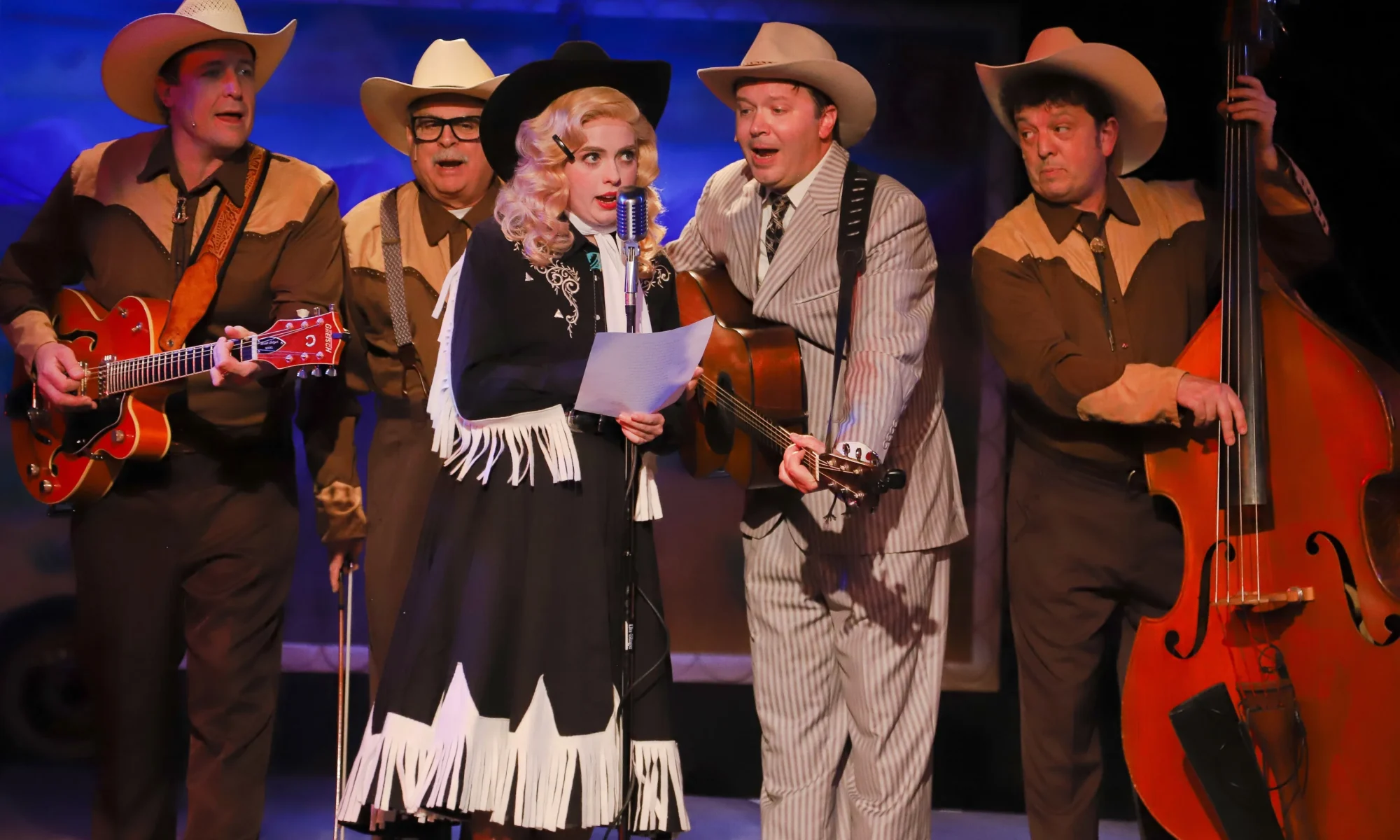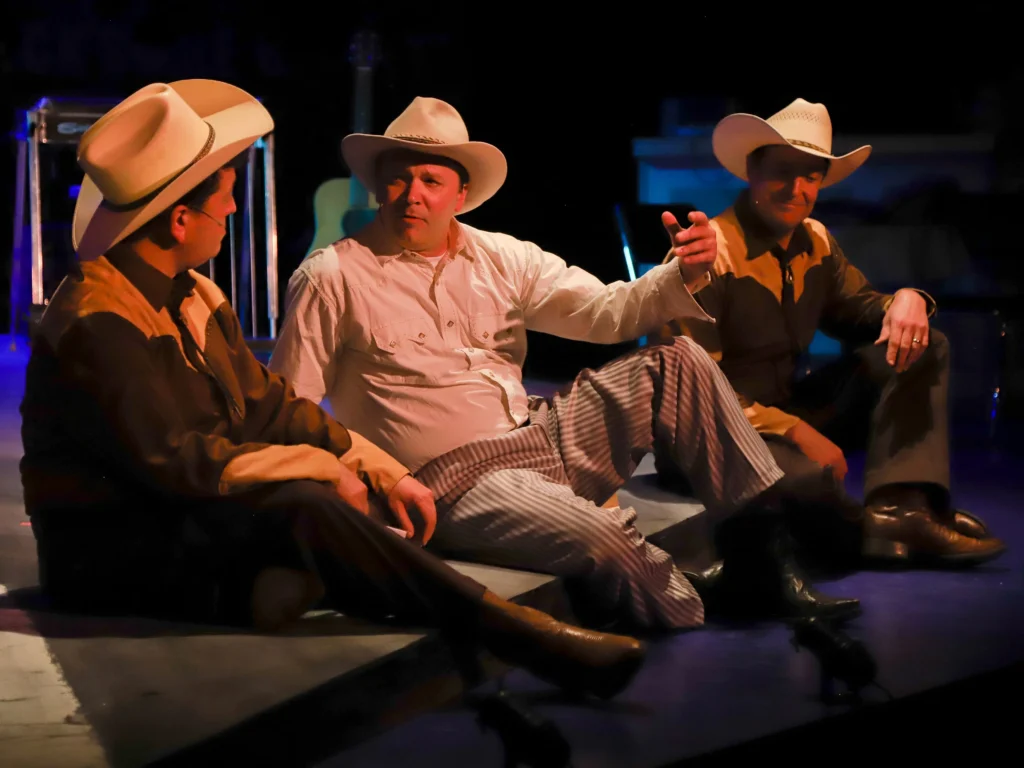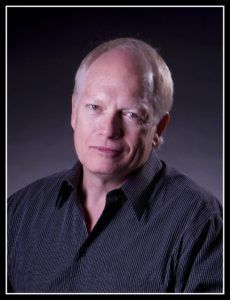By Barry Willis
The North Bay has been blessed recently with a spate of jukebox musicals, none better than “Hank Williams – Lost Highway” which opened at Santa Rosa’s 6th Street Playhouse April 1 and has been EXTENDED to May 1st!
Authored by Randal Myler and Mark Harelik, and expertly directed by Michael Butler, the show is a big production in every sense of the word—a cast of ten superb performers on the wide stage of the G.K. Hardt theater, with a spectacular set by Butler, Zach Bowlen, and Kristina Dorman, who painted the wonderful giant picture postcard that serves as backdrop.
Steven Lasiter stars as Williams, the doomed country star whose short career put an indelible stamp on American culture. Born with spina bifida, Williams was plagued by pain his entire life, something he tried to ameliorate with prodigious amounts of alcohol and prescription drugs—substances that proved his undoing as a performer and that ultimately ended his life. He died in the back seat of his Cadillac en route to a gig in Ohio—the official medical report cited “heart failure” while noting an alarming level of painkillers and alcohol in his blood. He was only 29 years old.
…an uplifting, life-affirming experience…
The show opens with a somber radio announcement of Williams’ passing, then flashes back to his adolescence in Alabama, where he was mentored by a bluesman named Rufus “Tee-Tot” Payne, played by real bluesman Levi Lloyd. Payne coached him on guitar, taught him melody and chord progression, and the fundamentals of songwriting, which Williams did entirely by ear. Despite creating dozens of hit songs that became American standards, he never learned to read or write music.
He said often that Payne was his only teacher. Butler emphasizes Payne’s importance by keeping him onstage throughout the show, sometimes in the shadows and sometimes in the spotlight to perform at key moments in the story. His presence also reinforces the fact that black music is both foundation and backbone of 20th-century pop music. Williams blended the blues form with traditional country instrumentation in a way that hooked millions of music fans—heartfelt melodies and simple lyrics evoking universal human desires and problems.
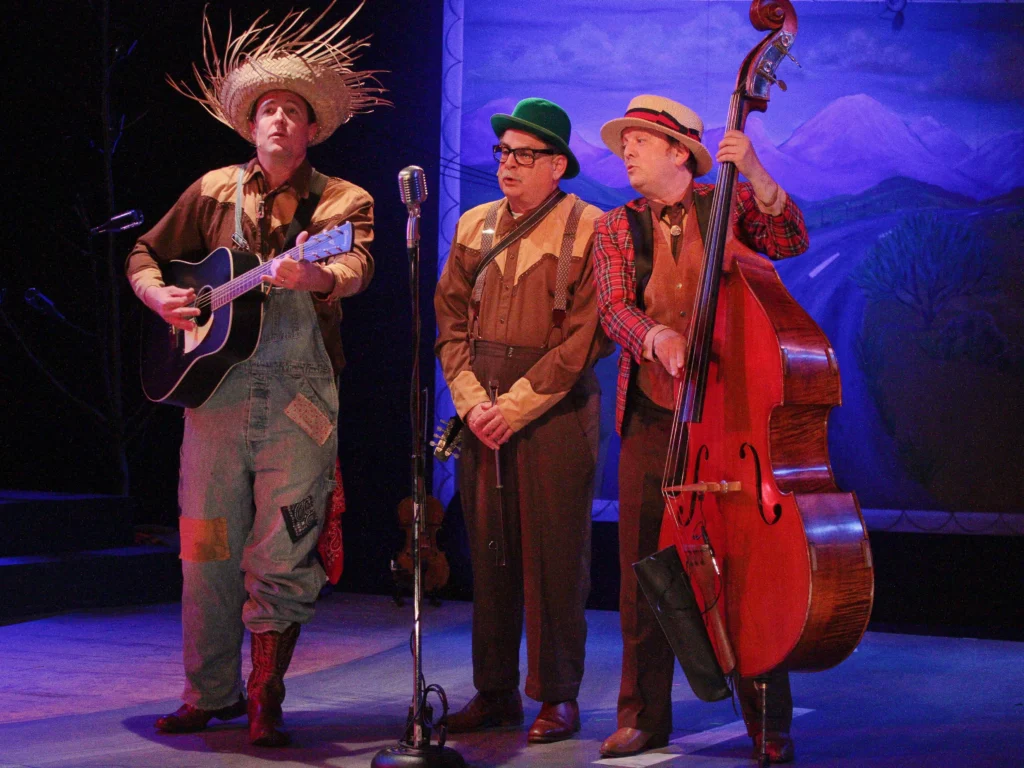
His band—the Drifting Cowboys—consists of excellent musicians who have stepped out of their comfort zones to double as actors. Michael Capella appears as Shag, the pedal steel player; guitarist Derek Brooker is Jimmy “Burrhead;” Michael Price is Hoss, the bass player; and Paul Shelansky is Leon, performing on mandolin, fiddle, and slide whistle. They rock the joint through dozens of Williams’ greatest songs, aided by tremendous sound design from Ben Roots.
Peter T. Downey does a fine job as “Pap” Rose, the recording engineer who became Williams’ manager. Jennifer Barnaba is solid as Audrey Williams, and Ellen Rawley is delightful as the unnamed waitress who runs off with Williams. Stage veteran Jill Wagoner is perfectly cast as Mama Lilly, Williams’ mother and his band’s sometimes manager and driver. She absolutely nails every nuance of a hard-working tough-as-nails Depression-era Southern woman.
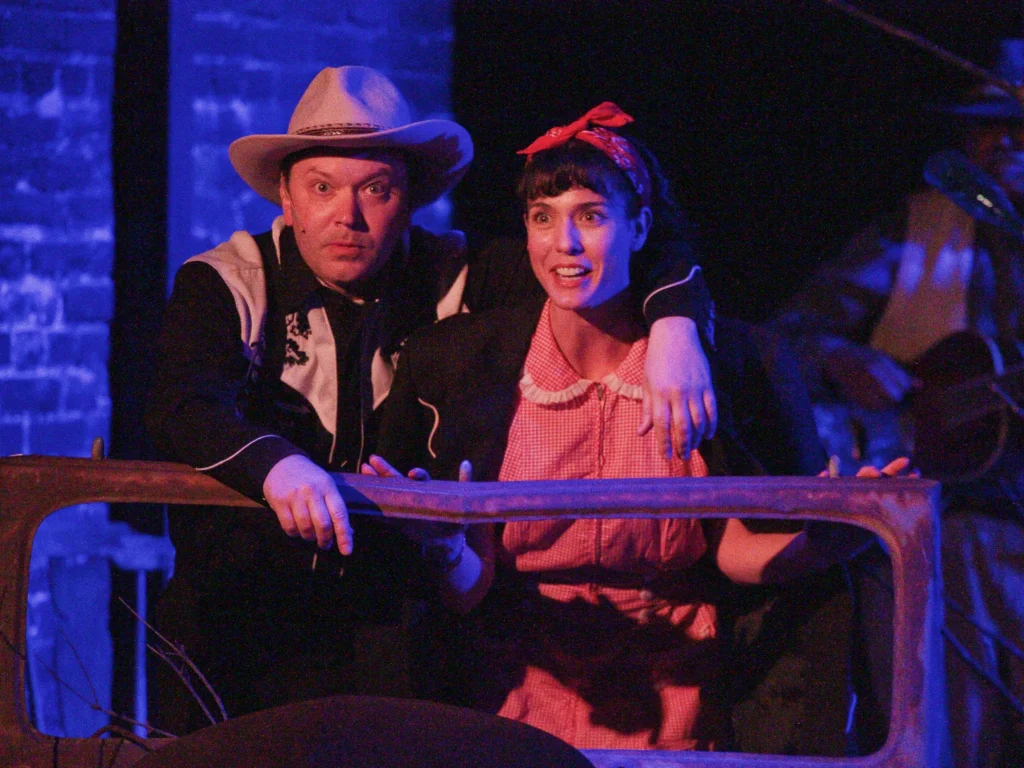
The show encompasses every aspect of Williams’ short life, from country-music boy wonder to Grand Ole Opry superstar to rejected drunk to venerated saint. It’s beautifully paced, even if Butler did confess post-show that he hoped it would move along faster.
“Hank Williams – Lost Highway” is a stunning, essential piece of Americana. Despite the tragedy at its core, it proves to be an uplifting, life-affirming experience. 6th Street deserves accolades not merely for producing it, but for producing it so well.
-30-
| Production | Little Shop of Horrors |
|---|---|
| Written by / Book by | Alan Menken / Howard Ashman |
| Directed by / Music Direction by | Aja Gianola-Norris / Lucas Sherman |
| Producing Company | 6th Street Playhouse |
| Production Dates | Thru Feb 19th |
| Production Address | 6th Street Playhouse 52 W. 6th Street Santa Rosa, CA 95401 |
| Website | http://www.6thstreetplayhouse.com |
| Telephone | (707) 523-4185 |
| Tickets | $35-$43 |
| Reviewer Score | Max in each category is 5/5 |
| Overall | 3/5 |
| Performance | 3/5 |
| Script | 4/5 |
| Stagecraft | 3/5 |
| Aisle Seat Review PICK? | ---- |

